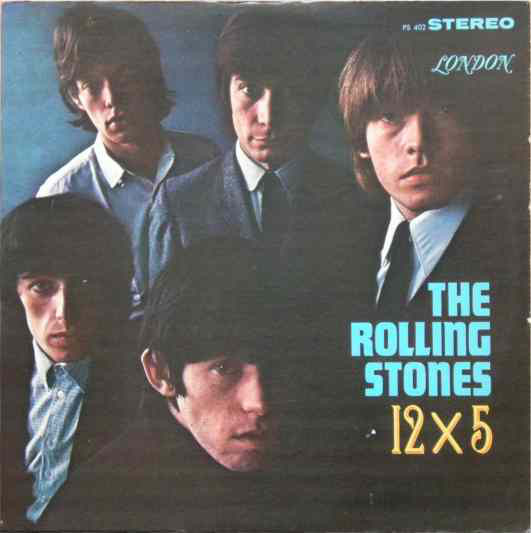12 x 5 filled the gap in The Rolling Stones’s early years.
12 x 5 is a product of a band thrown off guard by the propensity of popularity and a record label rushing to spit out a product thanks to the immediate success of the rock and roll explosion. The album that shortly followed their debut album, England’s Newest Hitmakers, these collections—culminated from throw away tracks, covers, and b-sides—was an expanded version of their 5 x 5 EP.
The album has been viewed as a stepping stone that eventually led to Out of Their Heads and then the all original masterpiece, Aftermath. As the labels were doing the same and trying to please fanfare, the Stones’s collection of blues and soul showed the direction they were following compared to the poppy Lennon-McCartney relationship of the other band.
By kicking the album off with Chuck Berry’s “Around and Around,” it was a strategic move to build association with the father of rock and roll. Mick Jagger gives the song a smooth texture while the blend of Brian Jones’s piano work and Keith Richards fuel a more Buddy Holly romp than “My Ding-a-ling” jam with their cool and collected tempo range. It serves as one of my favorite covers by them. What overshadows this song is “Empty Heart.” To me that is the definition of iconic 1960s jam that could nestle into the psyche of 1960s disillusionment. The song is chaotic and allusive while being direct.
The Irma Thomas classic “Time Is On My Side” is the first stand-out single for the band. Comparatively to the moment, it’s a flacid cover and does not progressively hold its own. Yet the song, with “Around and Around” was their launch into the States and their first appearance on The Ed Sullivan Show. If I had to pick between “It’s All Over Now” and “Time Is On My Side,” it would be the former.
More importantly, their original, “Good Times, Bad Times” is a taste of what was to become in the brilliant Beggar’s Banquet. Richard’s gritty acoustic jangle and Jones’s humid juice harp captures the Stones at their core.
Three of the songs on this album are credited to Nanker Phelge and are the most diverse, experimental, and edgy of the album. A pseudonym for the band as a collective, not only was it credited for “Empty Heart,” but also “2120 South Michigan Avenue” (the address for Chess Records) and “Grown Up Wrong.” Unfortunately, what surrounds these songs are tainted versions of “Under the Boardwalk” and the slightly better “Suzie Q.”
12 x 5 is not influential, but the album serves its purpose to the band’s origin story and adds enough punch to make it worth skimming through.




No Comment! Be the first one.